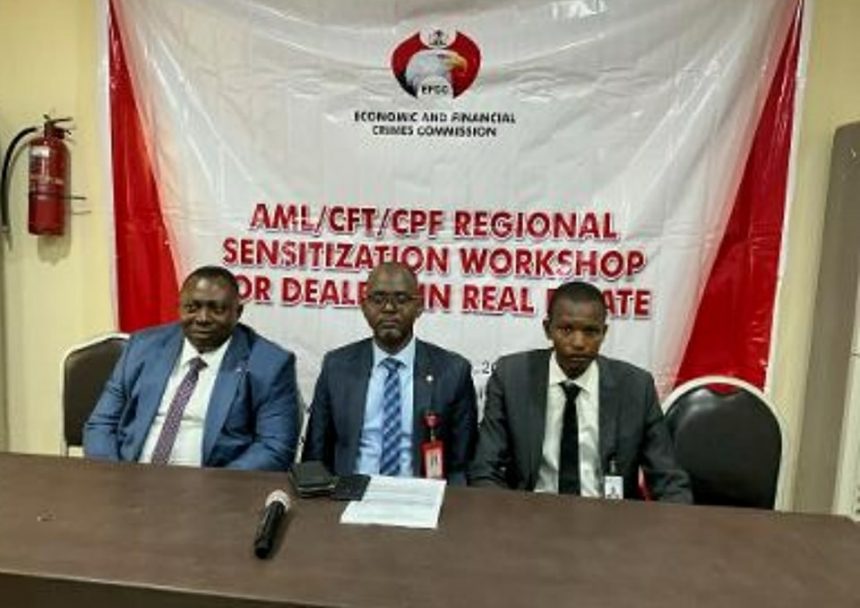The Economic and Financial Crimes Commission, EFCC, has called on real estate operators across the country to always conduct due diligence on their customers and comply with all extant laws governing money laundering and terrorism financing.
Kano Zonal Commander of the EFCC, Assistant Commander of EFCC, ACE1 Farouq Dogondaji made the call in his remarks at the opening ceremony of a two- day Workshop organised by the Special Control Unit Against Money Laundering (SCUML), Kano Command, for Designated Non-Financial Businesses and Professions (DSNFBPs) in the zone.
Explaining the basis of the workshop, Dogondaji disclosed that the commission has realised that the real estate sector is increasingly becoming a haven of illicit funds and operators in the sector need to learn new ways of identifying threats of money laundering.
He stressed that SCUML would continue to conduct sensitisation sessions to empower and enlighten Designated Non-Financial Businesses and Professions (DNFBPs) on new trends of money laundering and terrorism financing.
In her presentation, Nafeesa Sani, an Intelligence Analyst from Nigerian Financial Intelligence Unit NFIU, spoke on the need for DNFBPs to imbibe the culture of reporting suspicious transactions to the NFIU to safeguard their businesses.
SCUML’s Compliance Officer, Chief Superintendent of the EFCC, CSE Mathew Enu urged participants at the Workshop to subscribe to the Nigeria Sanction Committee to avoid being sanctioned.
“In today’s emerging risks and challenges, Financial institutions (Fis) and DNFBPs are seriously exposed to vulnerabilities of money laundering, terrorist financing and proliferation of weapons of mass destruction and consequently risk being sanctioned. It is therefore necessary to adopt preventive measures in the FIs and DNFBPs sector, to mitigate risks.”
Enu also advised the DNFBPs to adopt strong record keeping as a defensive mechanism and in compliance with the provisions of Money Laundering laws.
Head, SCUML, Kano Zonal Command, ACE1 Okoli Omagu emphasised that DNFBPs should designate a ranking officer of their respective organizations to serve as a compliance officer for the reporting of their financial transactions to SCUML.
“Designated Non-Financial Businesses and Professions shall appoint and designate AML/CFT Compliance Officer with the relevant qualification, competence, authority and independence to implement the company’s AML/CFT compliance programs,” he said.
He explained that the Compliance Officer should be a management staff or Head of the DNFBPs.
He also charged them to train their staff on money laundering techniques and terrorism financing laws and regulations so as to keep them updated on new trends.



Leave a Reply